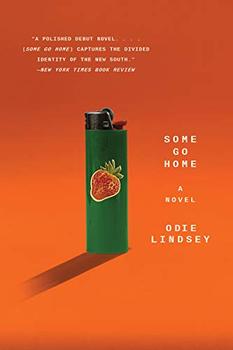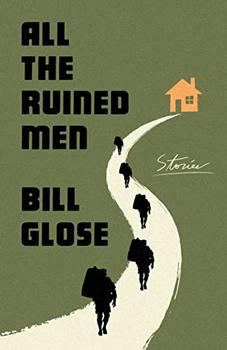Summary | Excerpt | Reviews | Beyond the book | Read-Alikes | Genres & Themes | Author Bio

A searing debut novel that follows three generations - fractured by murder, seeking redemption - in fictional Pitchlynn, Mississippi.
An Iraq War veteran turned small-town homemaker, Colleen works hard to keep her deployment behind her―until pregnancy brings her buried trauma to the surface. She hides her mounting anxiety from her husband, Derby, who is in turn preoccupied with the retrial of his father, Hare Hobbs, for a decades-old, civil rights–era murder. Colleen and Derby's community, including the descendants of the murder victim, still grapple with the fallout; corrections officer Doc and his wife, Jessica, have built their life in the shadow of this violent act.
As a media frenzy builds, questions of Hare's guilt―and of the townsfolks' potential complicity in the crime―only magnify the ever-present tensions of class and race, tied always to the land and who can call it their own. At the center of these lingering questions is Wallis House, an antebellum estate that has recently passed to new hands. A brick-and-mortar representation of a town trying to erase its past, Wallis House is both the jewel of a gentrifying 2010s Pitchlynn, and the scene of the 1964 murder itself. When fresh violence erupts on the property grounds, the battle between old Pitchlynn and new, between memorial site and moving on, forces a reckoning and irreparable loss.
Some Go Home twists together personal and collective history, binding north Mississippi to northside Chicago, in a richly textured, explosive depiction of both the American South and our larger cultural legacy.
At first blush, Some Go Home explores veteran Colleen Friar's acclimation back to her hometown of Pitchlynn, Mississippi following her deployment. Yet the novel also addresses the idea that home is an amalgamation of people and places, lineage and legacy. Some Go Home explores how a place can leave an indelible mark...continued
Full Review
(632 words)
This review is available to non-members for a limited time. For full access,
become a member today.
(Reviewed by Jane McCormack).
 In Some Go Home, author Odie Lindsey references then-presidential candidate Ronald Reagan's "states' rights" speech as the vehicle that "had re-radicalized Hare's power, breathing life into his limp narrative." Lindsey implies that the candidate's speech allowed the fictional character Hare Hobbs to create an illusion of power for himself by working along with others to suppress the civil rights movement surrounding them. The author aptly notes that Reagan had "issued formal cover for their cause." Indeed, many white voters construed the speech, which criticized federal social initiatives such as welfare, as tacit approval of racism and classism. Reagan's bid for presidency, as well as the Republican party's desire for control, served ...
In Some Go Home, author Odie Lindsey references then-presidential candidate Ronald Reagan's "states' rights" speech as the vehicle that "had re-radicalized Hare's power, breathing life into his limp narrative." Lindsey implies that the candidate's speech allowed the fictional character Hare Hobbs to create an illusion of power for himself by working along with others to suppress the civil rights movement surrounding them. The author aptly notes that Reagan had "issued formal cover for their cause." Indeed, many white voters construed the speech, which criticized federal social initiatives such as welfare, as tacit approval of racism and classism. Reagan's bid for presidency, as well as the Republican party's desire for control, served ...
This "beyond the book" feature is available to non-members for a limited time. Join today for full access.

If you liked Some Go Home, try these:

by Bill Glose
Published 2022
For readers of Phil Klay, Kevin Powers, and Tim O'Brien: Dramatic, powerful, authentic short stories of soldiers fighting a "forever war," in combat and back home.

by Kristin Hannah
Published 2019
From the author of The Nightingale, comes a story of a family in crisis and a young girl struggling to survive at the edge of the world, in America's last true frontier.
Not doing more than the average is what keeps the average down.
Click Here to find out who said this, as well as discovering other famous literary quotes!